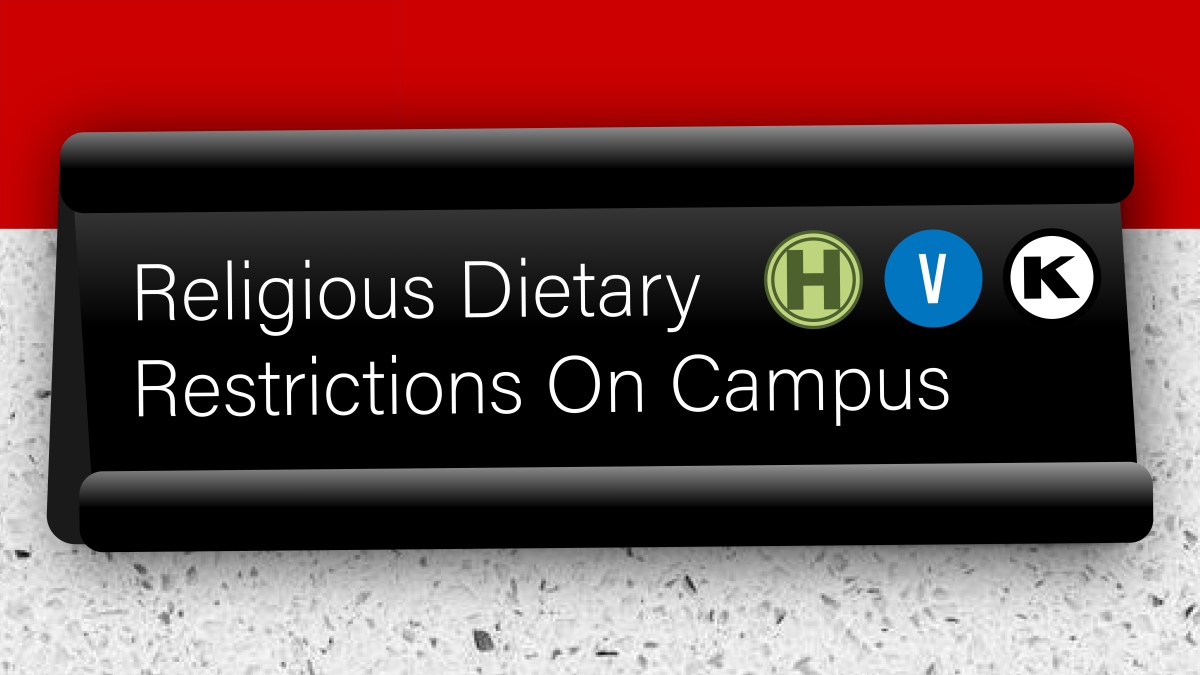Food is a fundamental part of a culture that can bring communities together. NC State food and dining’s food offerings must reflect and support the student body by providing menu items that align with various religious dietary restrictions.
Lauren Smith, director of nutrition and wellness for NC State Dining, said halal food offerings are some of the most frequently requested items in dining halls and campus markets. Halal foods are permissible under Islamic law, while haram foods are forbidden. Some common haram foods are pork, pork derivatives and alcohol.
Mikhail Reza, a fourth-year in the college of engineering and member of the Muslim Student Association, said halal meat must be blessed at the time of a humane slaughter.
“For Muslims, it’s a way that we go ahead and preserve the sanctity of what we eat,” Reza said. “We make sure that everything that we consume is pure, is healthy, and we have an Arabic term called Tayyib, which means ‘good,’ essentially, which is spiritually good for you.”
NC State Dining has worked with vendors to increase halal meat offerings, provide appropriate certification and adjust menu items and hours during holidays.
During Ramadan, NC State Dining will offer several services to support NC State’s Muslim students. Beginning March 17 through the end of Ramadan, Clark Dining Hall will close at 9 p.m. to accommodate the later sunset.
Another service offered will be the “double swipe,” which allows students to access the dining hall and take a box of food to go or two to-go boxes in one meal period. Students interested in receiving this dining accommodation must sign up.
Menus will also change during Ramadan, including more halal entree options and dates for students to break the fast.
“As of a couple years ago, per a student’s request, we started adding dates on the salad bar,” Smith said. “We don’t typically have them; they’re kind of hard to get in bulk, but during that month, we have dates on the salad bar because that is a very traditional way to break the fast.”
Reza said the community efforts have greatly impacted students.
“We really look forward to positive experiences during the month of Ramadan,” Reza said. “So to see the University try and help us facilitate a good environment to have that on campus really makes us feel more connected to campus and helps us connect the campus with our faith and spiritual practice as well.”
Smith said one of the most important qualities when discussing religious dietary restrictions is clear, concise communication. At NC State, there is a unique labeling system which differentiates between vegan, vegetarian and halal entrees and sides.
However, while dining halls on main campus have rotating menus and a variety of offered foods, Centennial Campus has more limited options.
Dhanush Udayashankara Jamadgni, a third-year doctoral student studying material science and president of Hindu YUVA, a socio-cultural Hindu student organization on campus, said the two main vegan and vegetarian options on Centennial Campus are a black bean burger and pizza. Udayashankara Jamadgni added that many Hindu students are afraid to eat the black bean burger due to fears of cross-contact.
In the Hindu religion, one of the main dietary restrictions is consuming beef.
“The cow is considered as a god, because it gives you milk, it gives you life, it gives you everything,” Udayashankara Jamadgni said. “Because we are from an agricultural background, we worship it, because it kind of is the main source of our livelihood.”
While providing accommodations and menu items that support students’ religious dietary restrictions are imperative, it’s also meaningful to provide students with menu items that reflect the varied backgrounds and cultures in the student body.
“Because there are around more than 2,000 Indian students on campus here, it would be really nice to see if we had more Indian food options on the menu,” Udayashankara Jamadgni said.
Smith said no Kosher meals are available at this time due to the diet’s kitchen-keeping restrictions.
“I think in order to properly, genuinely do a kosher meal or kosher meat, we would need a separate kitchen, so we don’t currently have kosher options,” Smith said.
Instead the focus is geared toward prevention for students that have religious dietary restrictions.
“We keep meat separate from dairy and things like that, like certain rules, but we don’t have dedicated kosher meals,” Smith said.
Students with religious dietary restrictions can also go through the Office of Equal Opportunity to see if specific needs can be met. When accommodations cannot be made, students will be granted a meal plan exemption in addition to meeting with a dietician to plan out alternative meals.
“The last thing we want is for them not to be on a meal plan, and then they also don’t have access to the grocery store, or don’t have a car,” Smith said. “So we make sure that they still have a plan or they’ve thought through how they will get their food.”
Ultimately, Smith emphasized the importance of leaving feedback on dining hall and meal plan offerings. Students can do this by texting a keyword, a list of which can be found here, to 55744. For students leaving comments or suggestions related to religious dietary restrictions, utilize the keyword “nutrition.”







